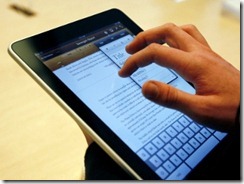 61% of women who are active blog users say they have made a purchase based on a recommendation from a blog, a proportion that rises to 87% among BlogHer network members, according to a March 2012 survey from the company, which polled a sample of women from the general population and a sample from its community. Recommendations from blogs compare favorably to popular social networks: among Facebook users just one-third of the general population sample (and 54% of BlogHer community respondents) report having made a purchase based on a recommendation from the network.
61% of women who are active blog users say they have made a purchase based on a recommendation from a blog, a proportion that rises to 87% among BlogHer network members, according to a March 2012 survey from the company, which polled a sample of women from the general population and a sample from its community. Recommendations from blogs compare favorably to popular social networks: among Facebook users just one-third of the general population sample (and 54% of BlogHer community respondents) report having made a purchase based on a recommendation from the network.
Meanwhile, Pinterest scores higher (47%) than Facebook among general population respondents who use the fast-growing network, but slightly lower among BlogHer community members (53%) who use it. Just 3 in 10 respondents from both groups who are active users of Twitter say they have made a purchase based on a recommendation from the site.
The study also notes that the influence of blogs is consistent across verticals: indeed, results from a BlogHer survey released in January 2012 indicated that general population respondents were 30% more likely to use advice from blogs than information or updates from a social network (69% vs. 53%) to help with a consumer electronics purchase, while BlogHer community respondents were 50% more likely to do so (84% vs. 56%).
Most Trust Info and Advice From Blogs
Meanwhile, according to BlogHer’s “Women and Social Media in 2012″ report, blogs’ influence on women’s purchase decisions is likely related to the amount of trust they place in the information and advice they gather from this source. Among BlogHer network respondents that are active users of each of the following media sources, 98% trust the information they receive from blogs, ahead of Facebook (86%), Twitter (85%), and Pinterest (85%). Among general population respondents, blogs and Pinterest (both at 85%) are the most trusted, with Twitter (73%) and Facebook (67%) trailing.
Facebook More a Social Space
Facebook is possibly less trusted as an information source due to women seeing it more as a communal space rather than as an information source. Presented with various categories, general population respondents chose Facebook over blogs for staying up to date with friends and family (87% vs. 20%), having fun (77% vs. 41%), entertainment (69% vs. 50%), and contributing to a community (41% vs. 28%).
By contrast, women said blogs were better suited than Facebook to find out about new products (41% vs. 24%), seek advice and recommendations (39% vs. 35%), get product information (37% vs. 17%), and help make purchase decisions (36% vs. 17%).
Other Findings:
- General population respondents indicated they were more likely to use Pinterest than Twitter to find out about new products (39% vs. 24%), to have fun (58% vs. 47%), and to get product information (26% vs. 18%).
- Daily blog readers from the general population sample were 52.2% more likely than the overall general population sample to say that turning to an online or social media site is the first thing they do when they want to buy something (35% vs. 23%). They were also far less likely to say they do not go online or to social media for a shopping decision (19% vs. 41%). According to a white paper released in January 2012 by Fleishman-Hillard in partnership with Hearst Magazine, more women reported that information found online (40%) was a highly important decision factor to them than their parents (30%), friends (27%), and children (24%). Additionally, information found online was also more significant than information in magazines (17%), newspapers (17%), or on the TV (16%).
- BlogHer network respondents were more likely than the general population sample to use Facebook (94% vs. 84%) and YouTube (75% vs. 62%), and less likely to watch TV (85% vs. 93%).
About the Data: The BlogHer survey fielded two samples online in February 2012. The results are based on the BlogHer network sample of 1,060 women, and the general population sample of 1,011 women. The general population survey was fielded by Vision Critical.







